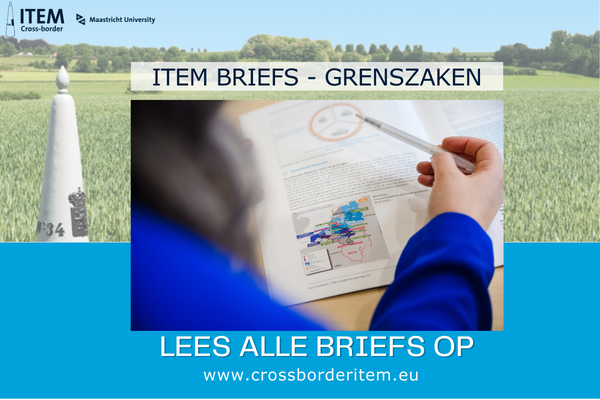EC proposed directive COM(2023) 516/4
on a European cross-border association: Citizens get a tool to enter into cross-border
partnerships; at last!

Martin Unfried MA.
Senior Researcher
Last September, the European Commission adopted a proposal for a directive on European cross-border associations (COM(2023) 516 final). “The proposal aims to … improve the conditions for the establishment and operation of European cross-border associations (ECBAs)”. According to the Commission, the current situation for non-profit organisations carrying out cross-border activities is one of “legal uncertainty”, “different administrative procedures” and “financial obstacles”. The proposal aims to “harmonise restrictive provisions”, “provide a clear and predictable framework” and “allow flexibility for Member States”.
Cross-border cooperation instruments
The Commission admits that: “there is little coordination between Member States to facilitate cross-border economic activities of non-profit associations [en dat] such coordination seems unlikely in the near future.’ The various cross-border cooperative instruments developed by the EU such as the European Grouping of Territorial Cooperation (EGTS), the European Cooperative Society (SCE), Societas Europaea (SE) are not intended for non-profit, non-governmental organisations. ITEM has advised on the creation of such cooperative instruments and is well aware of the difficulties NGOs in the EU face in (cooperating) across national borders and contributing to a variety of transnational socio-economic developments, including (according to the Commission) the dual green and digital transition.
But can it facilitate cross-border activities of associations where citizens come together to pursue common activities beyond a commercial interest? Back in 1991, the Commission proposed a Council Regulation (EEC) on the Statute for a European Association (COM(1991)0273). Member states did not support such an instrument. This explains the Commission’s reference to subsidiarity and its careful consideration of Member States’ interests on issues such as taxation, registration and representation. The “results of ex-post evaluations, stakeholder consultations and impact assessments” provide an insightful overview of the views of different stakeholders.
Legal forms
There is an urgent need for a specific and effective instrument for cross-border cooperation between citizens and non-profit organisations. The idea is to introduce a new legal form for non-profit organisations specifically designed for cross-border purposes (the ECBA) in each Member State, in addition to existing national legal forms. More importantly, it is to enable automatic recognition of this new legal form across the Union once an ECBA is registered in a member state. Organisation matters! Especially across borders. The legal form and organisational set-up can determine the scope and efficiency of cross-border cooperation. But only the future can tell whether this directive will take NGOs’ cross-border activities to a higher level of cross-border cooperation and whether it will generate more and better economic and social value in our cross-border region. German MEP Sergey Lagodinsky is the rapporteur for the negotiations in Parliament. He says that “democracy does not stop at national borders: citizen engagement in associations is the core of a vibrant democracy and the basis for our European future”. Indeed: why not fight poverty, climate change, racism and/or environmental pollution together in cross-border associations? I think this question is particularly relevant for those who live, work and cooperate in cross-border regions.

